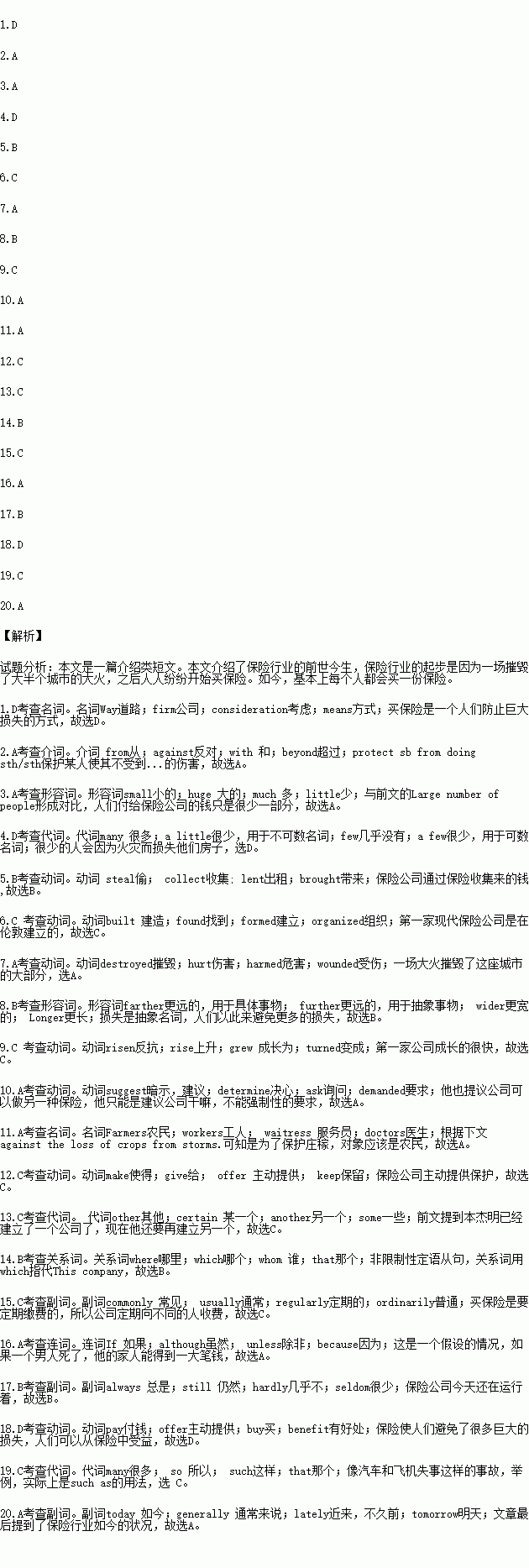题目内容
完形填空,阅读下面短文,从短文后各题所给的四个选项(A、B、C和D)中,选出可以填入空白处的最佳选项,并在答题卡上将该项涂黑。
Do you know insurance? Buying insurance is a ________ by which people can protect themselves ________ large losses. Protection against fire is one kind of insurance. Large numbers of people pay ________ sums of money to an insurance company. Although thousands of people have paid for fire insurance, only ________ will lose their homes by fire. The insurance company will pay for these homes out or the sums of money it has ________.
The first modern fire insurance company was ________ in London, England in 1666. A great fire had just ________ most of the city, and people wanted protection against ________ losses. The first company________ rapidly. Soon other companies were founded in other areas.
Benjamin Franklin helped form the first fire insurance company in America in 1752. He also ________ a new kind of insurance for ________ . The new insurance would offer protection against the loss of crops ________ storms.
In 1795, Benjamin Franklin helped start ________ new insurance company in America. This company, ________ offered life insurance, collected some money ________ from many different men. ________ a man died, his family was given a large sum of money. Today, this company is ________ in business.
Over the years, people have ________ from many new kinds of insurance when they have suffered from ________ accidents as car and plane crashes. ________ , almost everyone has some kind of insurance.
1.A. wayB. firmC. considerationD. means
2.A.. fromB. againstC. withD. beyond
3.A. smallB. hugeC. muchD. little
4.A. manyB. littleC. fewD. a few
5.A. stoleB. collectedC. lentD. brought
6.A. builtB. foundC. formedD. organized
7.A. destroyedB. hurtC. harmedD. wounded
8.A. fartherB. furtherC. widerD. longer
9.A. risenB. risedC. grewD. turned
10.A. suggestedB. determinedC. askedD. demanded
11.A. farmersB. workersC. waitersD. doctors
12.A. withB. byC. fromD. for
13.A. otherB. certainC. anotherD. some
14.A. whereB. whichC. whomD. that
15.A. commonlyB. usuallyC. regularlyD. ordinary
16.A. IfB. AlthoughC. UnlessD. Because
17.A. alwaysB. stillC. hardlyD. seldom
18.A. paidB. offeredC. boughtD. benefited
19.A. manyB. soC. suchD. that
20.A. TodayB. GenerallyC. LatelyD. Tomorrow

